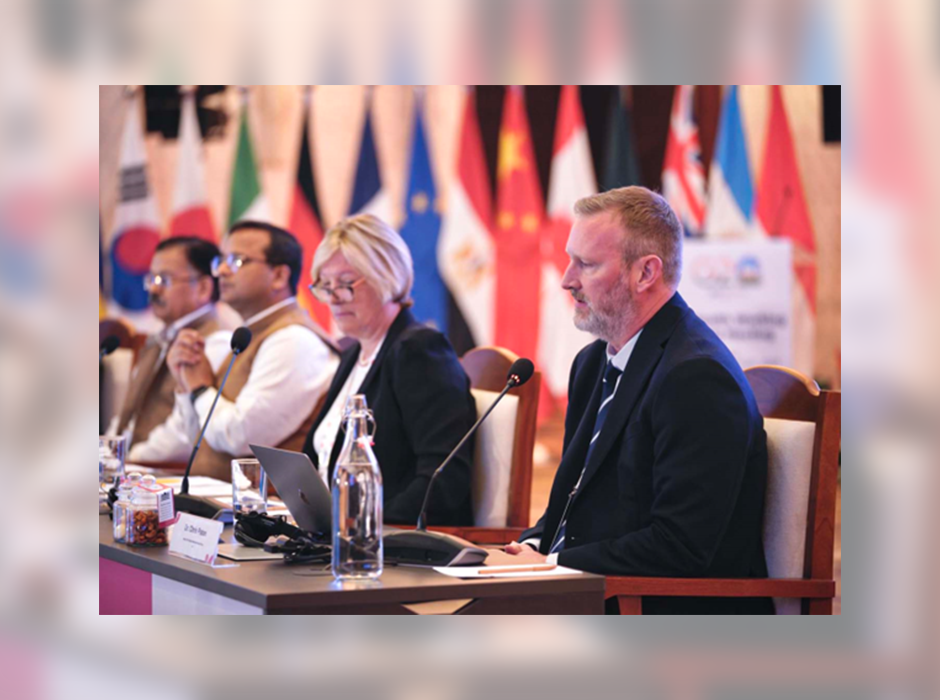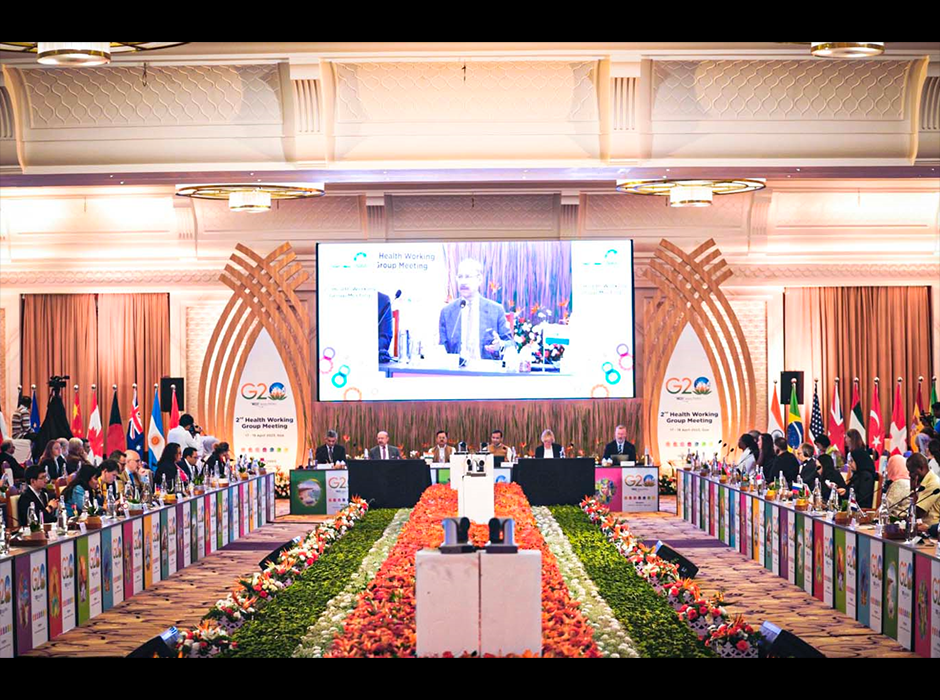
Dr Chris Paton explaining how the data from digital health systems can be used to improve health outcomes using real-life examples from the research he has done in Kenya, Vietnam and New Zealand.
The World Health Organisation (WHO) launched a Global Initiative on Digital Health (GIDH) at the recent G20 Summit, after identifying the digitisation of healthcare was not just an innovative idea for the future but a part of humanity’s present reality.
Dr Chris Paton, the Director of Otago’s Digital Health postgraduate programme, presented at the G20 Health Working Group Digital Health event in India earlier this year, and is pleased about the GIDH initiative as it will be a platform to establish and support the implementation of global digital health standards.
He is optimistic about the initiative, saying it is sensible for Aotearoa to follow an international consensus on digitising healthcare as this will include best practices and resources to accelerate system transformations.
“New Zealand is part of the international community and so it’s wisest to collaborate with WHO and other nations on establishing and adopting international digital health system guidelines,” Dr Paton says.
“As a result of the coronavirus pandemic, most WHO and G20 countries realised they didn’t have the digital health infrastructure they would have liked to better manage this.
“They weren’t able to collect enough health-related data fast enough, something particularly problematic for countries with limited resources, and so it’s great to see GIDH launched.”

India’s Union Health Minister Dr Mansukh Mandaviya announced that the new GIDH will be one of the key deliverables of India’s G20 presidency.
Dr Paton explained this initiative will likely achieve several goals including providing guidance on implementing appropriate cyber security regulations to protect health-related data.
This could be challenging because different countries have different laws and approaches to privacy, and this would also need to be kept updated as artificial intelligence becomes increasingly relevant, he says.
Also, the systems that are eventually established need to be designed in a way that is easy to use and patient-centric, he says, not just technical-heavy solutions.
“For example, one of the HRC grants we’ve had funded in New Zealand is developing user-friendly and equitable telehealth services, a digital health offering that needs to be people focused to succeed.
“Another large part of the discussion at the G20 meeting was building the workforce needed to operate these systems because the digitisation of healthcare is happening very quickly, and so programmes like Otago’s postgraduate Digital Health courses are becoming increasingly important.
“I think it would be fantastic to see more of both our local and international students making up that future global workforce.”
Dr Paton presented first at the G20 meeting, sharing the challenges and opportunities artificial intelligence can bring to the process of digitising healthcare. One of his projects in Kenya is currently using technology like this to help rural healthcare workers diagnose pneumonia in children.
He has been working part-time at the University of Otago for three years as well as continuing his work with the University of Oxford, where he has been for the last 10 years.
-Kōrero by the Division of Health Sciences Communications Adviser, Kelsey Schutte.